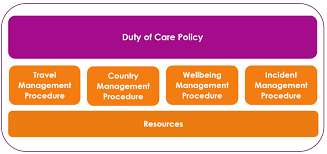Tips
7 Common Travel Management Mistakes to Avoid

The demand for business travel continues to surge. With this surge, companies increasingly rely on in-house travel managers, recognizing their important role in overseeing seamless journeys for employees. These travel managers shoulder responsibilities, from crafting intricate itineraries to booking flights and accommodations, ensuring policy adherence, and providing unwavering support throughout the travel process.
Yet, in the means of managing these tasks, even the most adept travel managers may find themselves making decisions that may lead to unavoidable mistakes, which, if left unaddressed, can significantly impact the travel experiences of employees and, ultimately, the company’s financial stability.
In this article, we will dive into corporate travel management, shedding light on the common mistakes that travel managers must avoid to uphold standards.
1. Inadequate Planning
One of the most common mistakes in travel management is inadequate planning. Rushed decisions can result in missed flights, subpar accommodations, and disorganized itineraries. To avoid this, careful planning is essential. From itinerary planning and accommodation arrangements to expense tracking and traveller safety protocols, a thoughtfully curated business travel checklist can significantly streamline the travel management process. By adhering to this checklist, both travel managers and travelling employees can avoid common travel management mistakes and enhance the overall travel experience.
2. Ineffective Travel Policies
Another prevalent mistake is ignoring established corporate travel and expense policies. Without clear guidelines, employees might overspend on accommodations, meals, and transportation. To address this issue, establish comprehensive travel policies outlining acceptable expenses, preferred vendors, and reimbursement procedures. Communicate these policies effectively to all employees, emphasizing the importance of adhering to budgetary constraints while travelling. Also
3. Overlooking Technology
In today’s digital age, overlooking technological solutions is a significant oversight. Travel management software, expense-tracking apps, and communication platforms can streamline various aspects of business travel. Implementing these technologies enhances efficiency, allowing employees to focus on their tasks rather than administrative hassles. Embrace innovative solutions to automate expense reporting, itinerary management, and communication during trips.
4. Neglecting Duty of Care
Neglecting duty of care is a grave mistake that businesses must avoid. Travel-related emergencies, such as natural disasters, political unrest, or health crises, can jeopardize employee safety. To mitigate risks, establish a robust duty of care program. Provide travellers with emergency contacts, access to medical assistance, and real-time travel alerts. Regularly update your duty of care policies and ensure employees are aware of the available support systems.

5. Not Optimizing Budgets for Maximum Impact
One of the critical oversights in travel management is neglecting to monitor travel spending diligently. Expenses can quickly spiral out of control without proper oversight, impacting budgets and financial forecasts. Travel managers must implement vigilant spending monitoring systems. By leveraging expense management software and conducting regular audits, businesses can identify areas of overspending, negotiate better deals with vendors, and optimize budgets effectively.
6. Underestimating the Impact of Travel on Employee Health
Travelling, especially frequently, can take a toll on the health and well-being of employees. Ignoring the impact of travel on employee health can lead to decreased productivity, increased stress levels, and potential burnout. Travel managers should prioritize employee well-being by encouraging healthy travel practices, offering resources for managing travel-related stress, and providing access to wellness programs. By fostering a culture of well-being, businesses can ensure their employees stay healthy, motivated, and productive while on the road.

7. Not Staying Up-to-Date on Travel Regulations
Travel regulations are constantly evolving, and failing to stay up-to-date can lead to compliance issues and legal complications. Travel managers must dedicate resources to stay informed about the latest travel regulations, domestically and internationally. This includes understanding visa requirements, health and safety guidelines, and entry restrictions. By staying ahead of the curve, businesses can avoid travel disruptions, and legal challenges, and ensure a smooth travel experience for their employees.
FAQs
What Measures Can Businesses Take to Prioritize Employee Well-being?
To prioritize employee well-being, businesses can encourage healthy travel practices, offer resources for managing travel-related stress, and provide access to wellness programs.
How Can Companies Stay Updated on Travel Regulations?
Staying up-to-date on travel regulations involves dedicating resources to research and continuously monitoring official government websites, travel advisories, and industry updates. Companies can also subscribe to travel alerts or consult legal experts.
What Role Does Technology Play in Business Travel Management?
Technology plays a crucial role in enhancing business travel management. Travel managers can leverage travel management software, mobile apps, and data analytics tools to gain real-time insights, automate expense reporting, and improve communication with travellers.
How to effectively manage travel expenses without compromising on quality?
Managing travel expenses efficiently involves strategic planning and negotiation. Start by setting clear spending policies, utilize automated expense management software, and regularly review vendor contracts to ensure competitive rates.
Conclusion
Effective business travel management goes beyond planning itineraries and booking flights. It requires meticulous oversight of expenses, prioritization of employee well-being, and staying up to date of the ever-changing landscape of travel regulations. By addressing these additional challenges alongside the previously discussed common mistakes, travel managers can elevate the travel experiences of employees, uphold the company’s reputation, and contribute significantly to the organization’s overall success.




